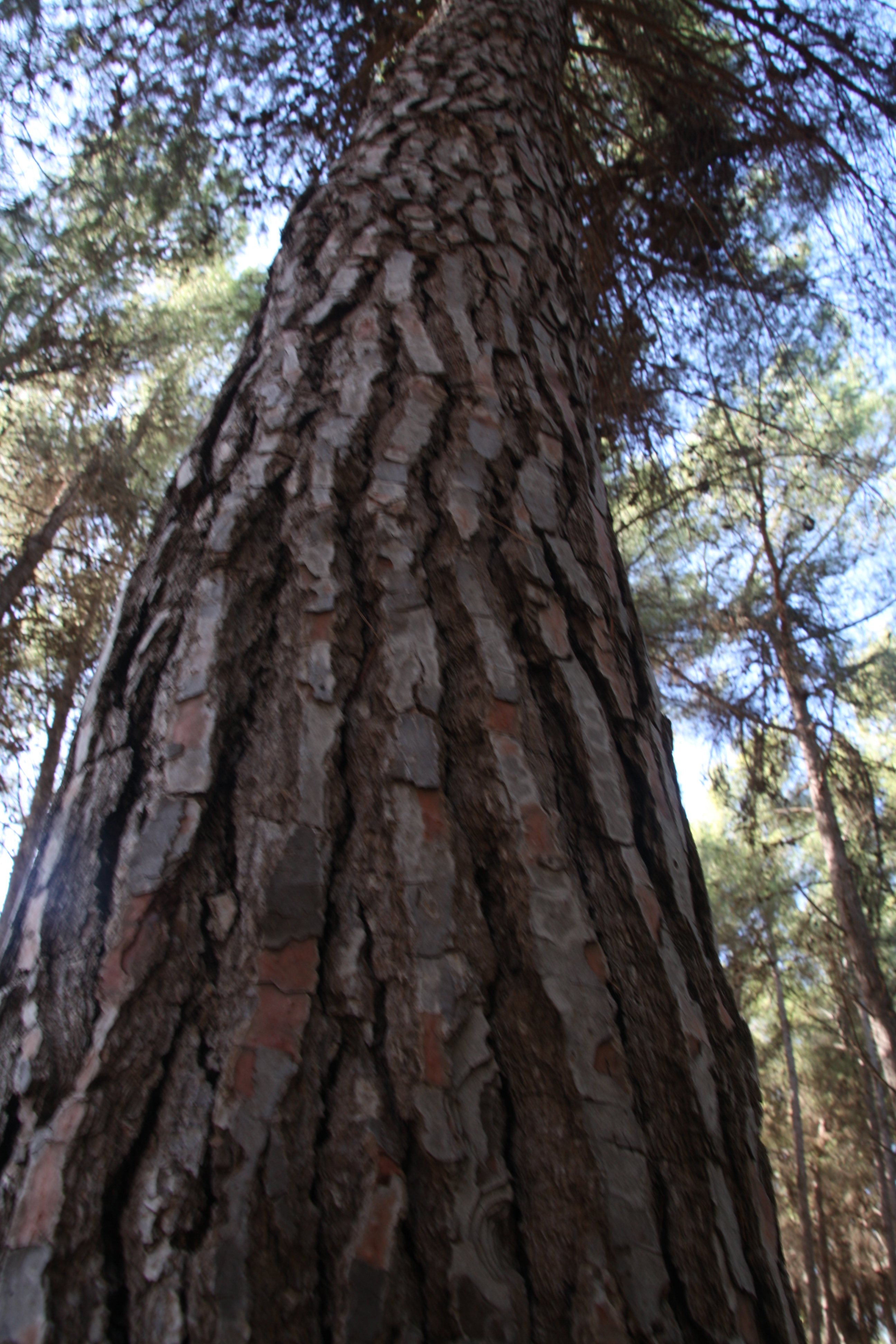What is Acacia Wood?
The Torah writes (Exodus 25:1-5):The Talmud (Rosh Hashanah 23a) explains that this was one of the ten types of cedar trees:And the LORD spoke unto Moses, saying: ’Speak unto the children of Israel, that they take for Me an offering; ... and acacia-wood
There are 10 types of cedars as it says "I will plant in the wilderness the cedar, the acacia-tree, And the myrtle, and the oil-tree; I will set in the desert the cypress, the plane-tree, and the larch together" (Isaiah 41:19)Lazei Rashi (ibid) explains that Rashi here refers to the pine tree
Rabbi Aryeh Kaplan in the Living Torah (Exodus ibid) explains that this is referring to a different tree named Acacia albida (applering acacia) which can grow in deserts.
Rabbi Aryeh Kaplan (ibid) also cites opinions that this refers to decay-proof wood
Abarbanel (ibid) explains that this was a type of cedar which was extremely light
| Acacia Albida (By Avi1111, CC BY-SA 3.0) |
 |
| Pine tree in Israel (אורן דהן - CC BY 2.5) |
 |
| Cedars of Lebanon (BlingBling10, CC BY-SA 3.0) |
Where did they get the Acacia Wood?
Rokeach al haTorah (ibid 26:15) explains:Where did they get these [trees] in the desert? Rabbi Tanchuma explained that our father Jacob foresaw with the holy spirit that the Israelites were destined to build a Mishkan in the desert, so he brought cedars to Egypt and planted them. He commanded his sons to take them with them when they left Egypt. — [from Mid. Tanchuma 9]
For Abraham planted them as an orchard in Beer ShebaDaas Zeikim (ibid) cites opinions that these may have been grown from Jacob's staff:
We have been told in addition that the בריח התיכון, (Exodus 36:33), the center bolt, used to be Yaakov’s walking staff, the one with which he had crossed the river Jordan on his way to Lavan. ... Another interpretation found in the Midrash is that this was wood from the staff Yaakov had taken with him on the way to Lavan. [I suppose that what the Midrash means is that Yaakov had planted that walking staff in the earth in Charan already, and it had developed. Ed.]
Daas Zeikim (ibid) cites another opinion that they got them from the desert:
There were some forests in the desert from which the Israelites were able to cut boards which they called shittim. This is also why we read in Joshua 2:1 that “Joshua sent out spies from (the forest around Shittim)” This is also what the prophet Isaiah referred to (Isaiah 41:19) when he wrote "I will plant cedars in the deserts, acacias and myrtles, and oleasters"(Matnas Kehuna [Exodus Rabba 20:3] explains that Shittim was called that way because of its large forests of acacia wood)
Ibn Ezra (ibid) explains in a similar fashion:
One wonders why they would carry them out [of Egypt] if they did not need them, and furthermore the Egyptians thought they went to sacrifice and would come back, and they would ask them why they are taking such large beams as high as 20 cubits ... Therefore, a different explanation - close to Mt. Sinai there was a forest of acacia wood and when they came there, he [Moses] told them that they will stay there for a long time and will not have the Clouds [of Glory] as I explained earlier. At that time they all made shelters and the Princes made courtyards for themselves and cut down the entire forest for they were numerous people and made shelters. But Moses did not tell them about the Tabernacle until after Yom Kippur and that is what it means "all that they had before" [i.e. they already had them in their possession]
Midrash Shir haShirim Rabbah (4:13) explains that trees grew from the Well of Miriam:
Rabbi Yochanan said: the well grew for them all kinds of legumes, seeds and trees and we know this for when Miriam died and the well stopped, they said: "This is not a place for seeds, or fig trees" (Numbers 20:5)
Abarbanel (ibid) provides another explanation - they bought them on the way:
And a better explanation is that nations came from all over to the camp of the Jews to sell them all kinds of things, and from them they bought oil for lighting [the Menorah], and the spices and oil for anointing and incense, for you would not think that they brought all that from Egypt, and from them they also bought the acacia wood
[Published at parshapeople.blogspot.com / Comments welcome to parsha-people@publishyoursefer.com]
No comments:
Post a Comment